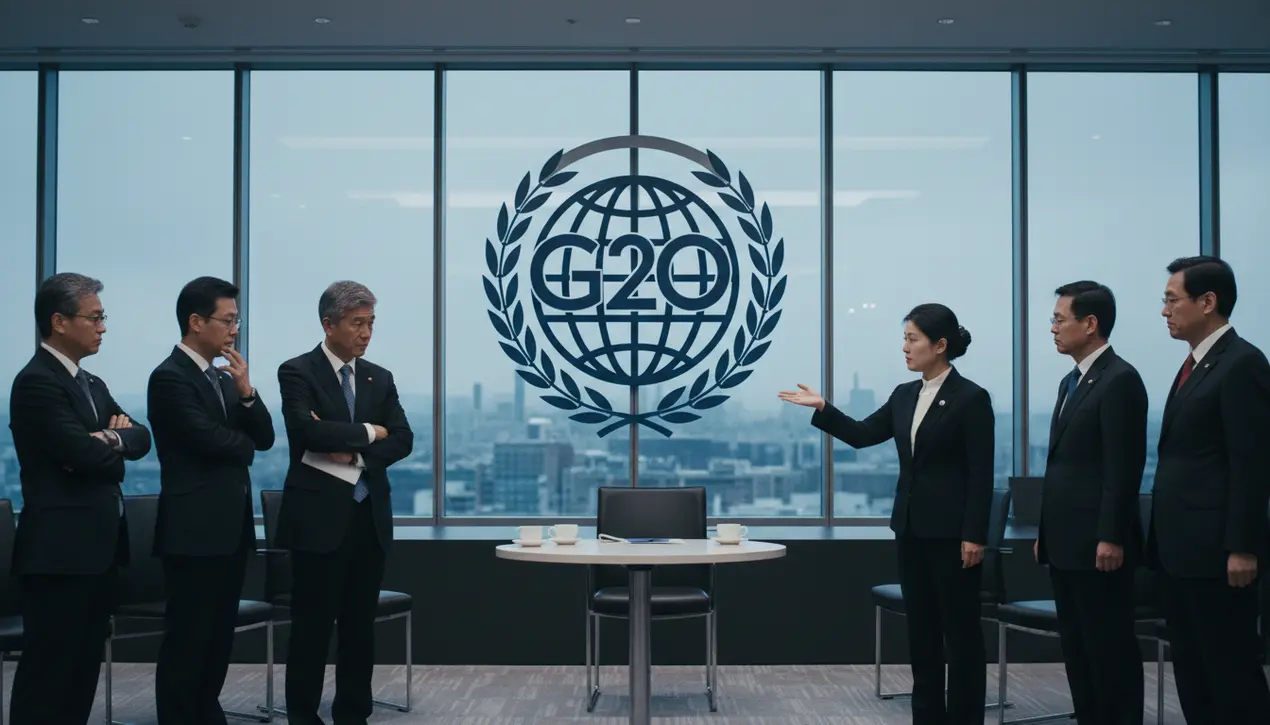
PoliticsdiplomacyBilateral Relations
China Rejects Japan Meeting at G20 Over Taiwan Dispute.
RO
Robert Hayes
3 hours ago7 min read
In a calculated diplomatic maneuver that signals a deepening chill in East Asian relations, China has formally declined a leaders’ meeting with Japan at the forthcoming G20 summit in South Africa, a rebuke directly tied to the persistent and volatile dispute over Taiwan. The announcement, delivered with cool precision by Chinese foreign ministry spokeswoman Mao Ning during a regular media briefing, was unequivocal: “I can tell you that Premier Li Qiang does not have a meeting arrangement with Japanese leaders.” This is not a mere scheduling conflict; it is a deliberate political statement, a tactic reminiscent of historical power plays where summits become stages for signaling displeasure rather than fostering dialogue. The G20, intended as a forum for global economic cooperation, is thus transformed into an arena for bilateral grievances, with the shadow of Taiwan looming large over the proceedings.The core of Beijing’s position is its unwavering commitment to the 'One-China' principle, a non-negotiable tenet of its foreign policy that views Taiwan as an inalienable part of its territory. Any perceived deviation from this by Japan, whether through rhetorical support for Taiwan’s democratic resilience or enhanced unofficial exchanges, is treated in Beijing as a profound strategic challenge, akin to the foundational crises that have historically realigned great power relations.This current friction did not emerge in a vacuum; it is the latest escalation in a relationship long burdened by historical animosities, from the legacy of World War II to contemporary competition over regional influence. The South China Sea, technological supremacy, and alignment within US-led security frameworks like the Quad all form the complex backdrop against this specific snub.For Japan, a nation that has long practiced a delicate balancing act between its security alliance with the United States and its deep economic interdependence with China, this move presents a significant dilemma. It underscores the increasing difficulty of maintaining that balance as Washington and Beijing engage in a broader contest for primacy.Analysts observing the situation draw parallels to Cold War-era diplomacy, where the refusal of a meeting was a standard tool to express condemnation and exert pressure without resorting to overt military or economic measures. The consequence of this diplomatic freeze extends beyond the two nations; it introduces a new element of instability into an already tense region, potentially complicating coordinated responses to global issues like economic stagnation and climate change on the G20 agenda.The question now is whether this is a temporary punitive measure or indicative of a more profound and lasting strategic decoupling. As Churchill might have observed, jaw-jaw is always preferable to war-war, but when one party refuses even to jaw, the silence itself becomes a potent and dangerous form of communication, the ramifications of which will be carefully studied in capitals from Washington to Canberra.
#China
#Japan
#G20 summit
#Taiwan
#diplomatic relations
#foreign policy
#lead focus news
Stay Informed. Act Smarter.
Get weekly highlights, major headlines, and expert insights — then put your knowledge to work in our live prediction markets.
Related News
Comments
Loading comments...
© 2025 Outpoll Service LTD. All rights reserved.